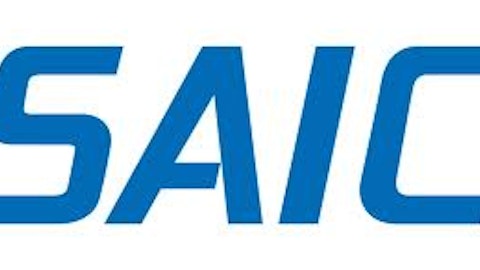The House Appropriations Committee approved a couple of days ago the fiscal 2014 bill, which provides $512.5 billion in non-war funding and highlights a $5.1 billion decrease compared to fiscal year 2013. Lobby efforts by some defense contractors were not enough, and this new budget could hurt sales and growth in the sector. For the time being, companies are not fully experiencing the impact this could have, but tougher times are still to come for the industry.
How Could Sequestration Affect Companies?
Both the fiscal austerity policy developed in 2013 called sequestration and now the new budget cuts will certainly impact the defense sector, but the question is who will receive the hardest hit. At the moment, there is no certainty about how the Pentagon will administer the cuts in each weapons program, so companies are having a hard time projecting numbers. Companies will have to go back to the trenches strategy.

Lockheed Martin Corporation (NYSE:LMT) has already released a statement concerning how sequestration could impact the sector and demanding clarification on the budget cuts, alleging that “sequestration will lead to furlough in some situations and could trigger layoffs.” This is not a happy statement for investors, but let’s take a look at the company’s financials.
The company posted a net sales decrease of 2% totaling $11.1 billion and a net earnings increase of 14% to $761 million for the first quarter of 2013 compared to the same quarter the prior year. Although sales have declined, the company had a good control of expenses and thus boosted its operating profit, resulting in an earnings surge. But the company will face some trouble in the coming months as described in their earnings release: that sequestration could trim 2013 net sales by $825 million, a big number. We expect to see some turbulence in the stock as it is largely exposed to the US: in 2012 82% of the $47.2 billion in net sales was from that region.
Raytheon: Flat Sales But Improved Operating Cash Flow
What about Raytheon Company (NYSE:RTN)? The company develops technology and products for defense and security markets globally. For the first quarter of 2013, Raytheon Company (NYSE:RTN) had almost flat net sales compared to the same quarter of 2012, totaling $5.9 billion. However, it has improved its operating cash flow significantly from $111 million to $422 million in the same period of comparison mainly by working capital improvements, which indicates the company could face some budget blows and still generate profits. Its stock has been untouched by sequestration fears and has gained more than 17% in the last six months. Another important point that indicates the company is financially solid is the quarterly dividend it announced of $0.55 per share, $2.20 annualized.
General Dynamics Corporation (NYSE:GD) has a global presence and a vast product portfolio including combat vehicles; weapons systems and munitions; shipbuilding design; and repair and construction and information systems. The company posted flat earnings for the first quarter of 2013, totaling $571 million compared to the first quarter of 2012. Also, it could not improve its operating margins that stood at 11.4%. The management gave guidance about the sequestration indicating it wouldn’t significantly affect their 2013 results. In line with other defense stocks, General Dynamics Corporation (NYSE:GD) announced a regular dividend of $0.56 per share, and its stock price has gained more than 15% over the last six months.
Bottom Line
Lately, the big US defense contractors have diversified risks of budget cuts by expanding their product base and including some other services than the traditional security technology. This has been the case for Raytheon Company (NYSE:RTN), which acquired Teligy in 2012: a cyber-security firm specialized in wireless communications and vulnerability analysis. On the other hand, General Dynamics Corporation (NYSE:GD) acquired Vangent, an IT healthcare firm to further develop its information technology business. Nowadays, defense companies have grown into huge companies that sell a different range of products and services not only for the US military but for the civilian market as well. This gives a hint why most of the peer group analyzed in this article was not affected heavily by the sequestration program and did not even reflect minor setbacks in their stock prices.
The article The Effects of Budget Cuts on Defense Companies originally appeared on Fool.com.
Vanina Egea has no position in any stocks mentioned. The Motley Fool owns shares of General Dynamics Corporation (NYSE:GD), Lockheed Martin Corporation (NYSE:LMT), and Raytheon Company (NYSE:RTN). Vanina is a member of The Motley Fool Blog Network — entries represent the personal opinion of the blogger and are not formally edited.
Copyright © 1995 – 2013 The Motley Fool, LLC. All rights reserved. The Motley Fool has a disclosure policy.



